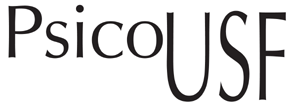Abstract
Intellectual disability (ID) affects the functioning of adaptive behavior and social skills (SS). One way to increase SS can be through parental involvement, as long as parents have sufficient educational social skills (ESS) to favor SS teaching. The objective was to evaluate and compare the ESS of parents of children with and without ID, and to investigate correlations between ESS and age, schooling of the child/parent, and socioeconomic status. Participants included a total of 52 parents of children (26 in each group). Parents responded to the ESS Inventory. The analysis identified that the higher the educational level of the children with ID, the greater the general score and the ability of parents to talk and dialogue with them. The results identified statistically significant differences (p < 0.01) between the ESS repertoire of parents of children with and without ID, suggesting necessary interventions with parents of children with ID, especially for parents with a lower socioeconomic level.
Keywords:
intellectual disability; educational social skills; parent-child relations
